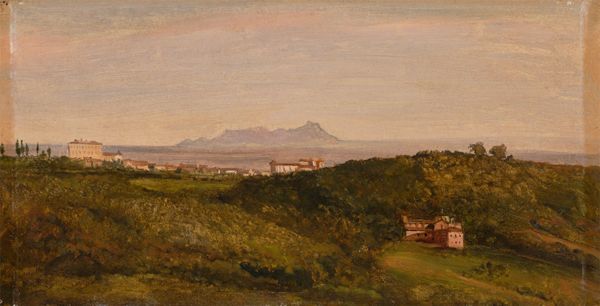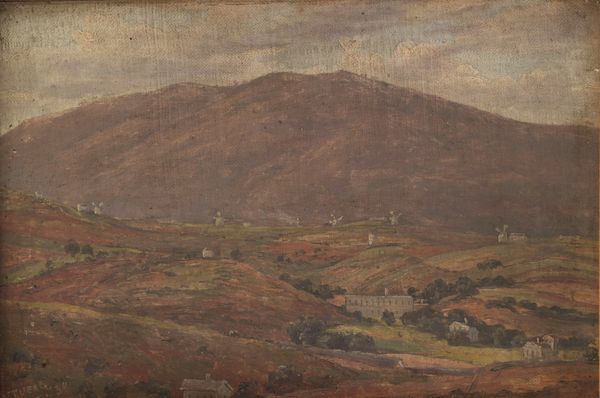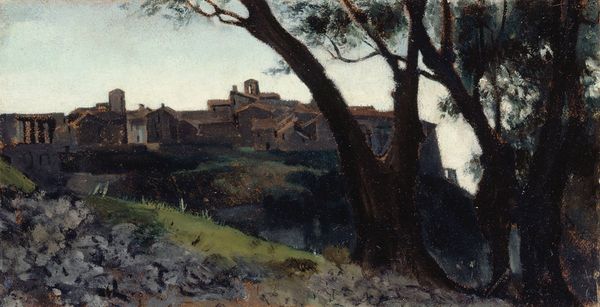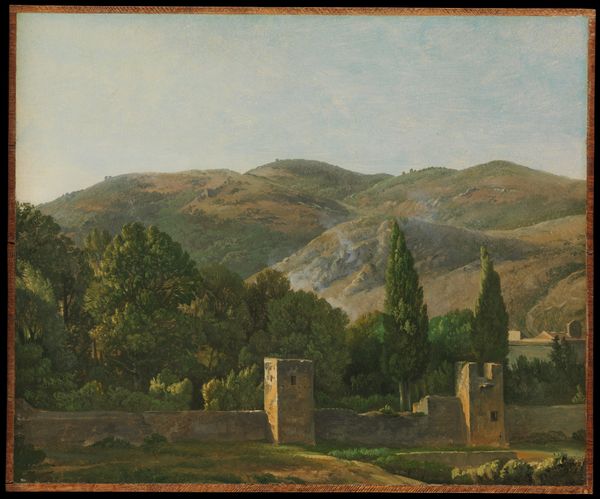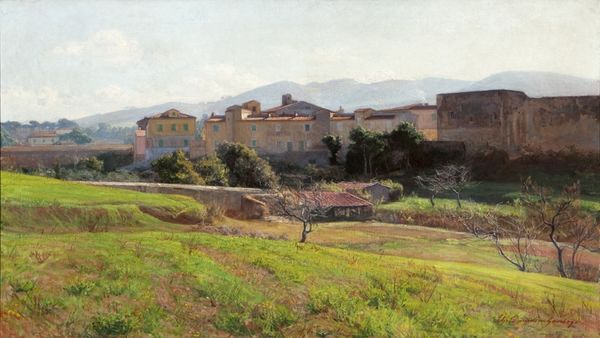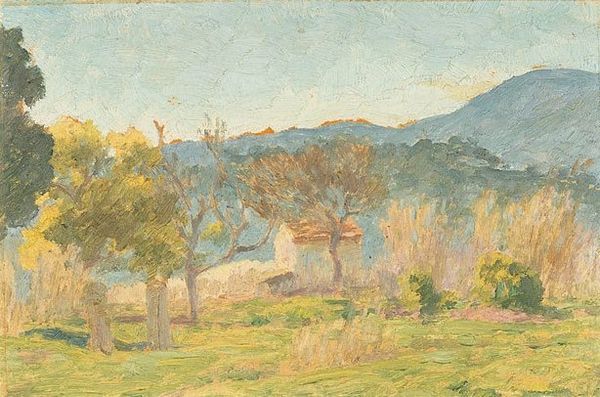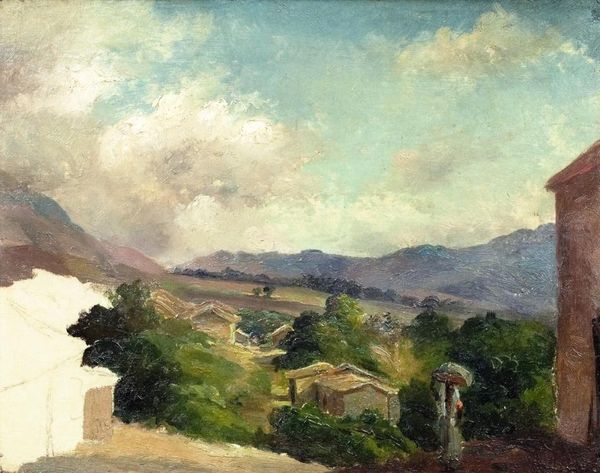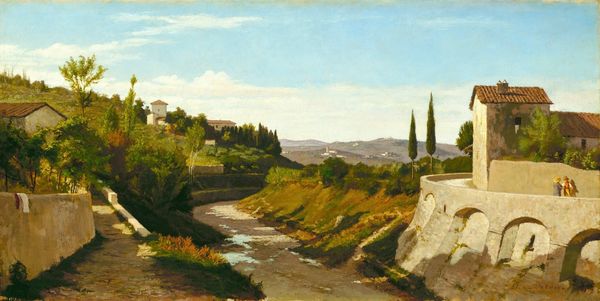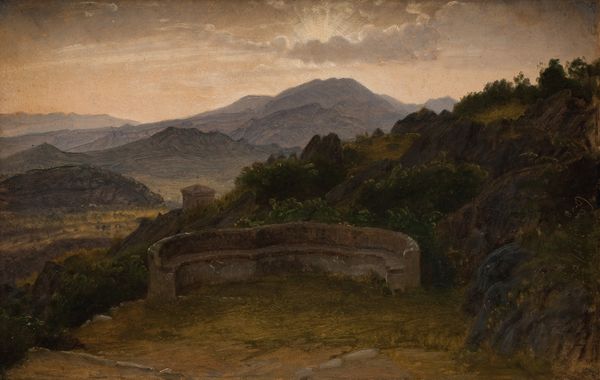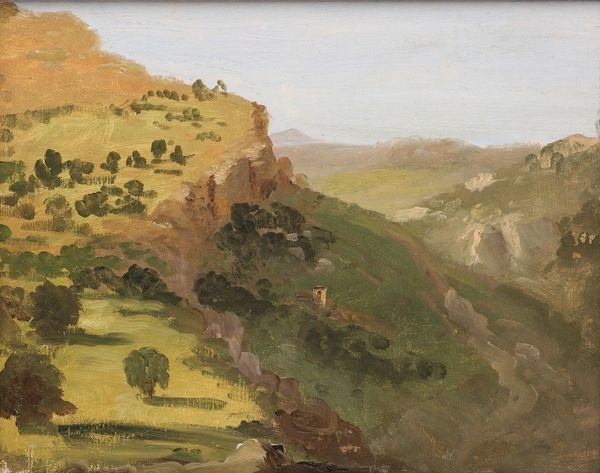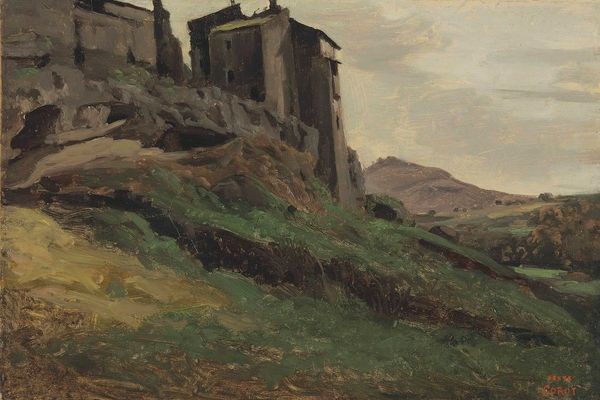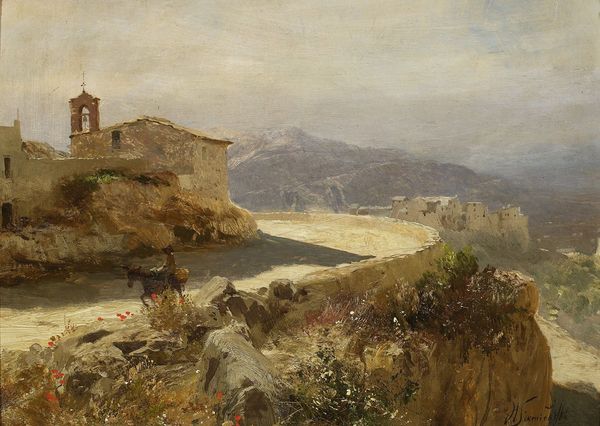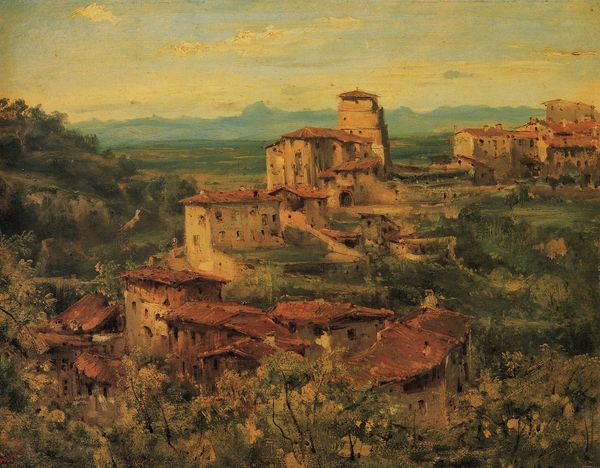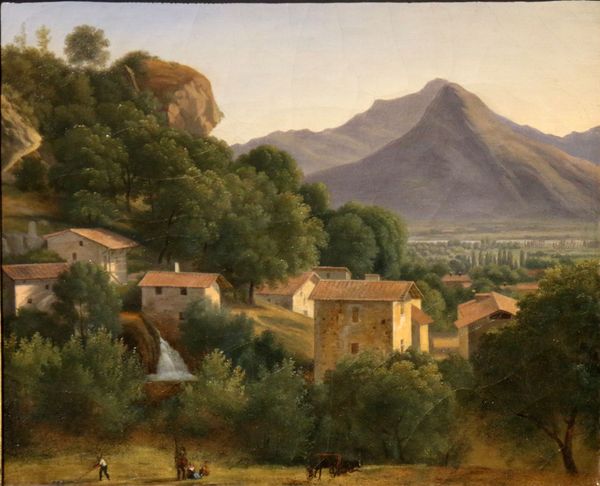
#
water colours
#
impressionist painting style
#
landscape
#
possibly oil pastel
#
oil painting
#
acrylic on canvas
#
underpainting
#
painting painterly
#
watercolour bleed
#
watercolour illustration
#
watercolor
Copyright: Public Domain: Artvee
Editor: This is Elihu Vedder's "Roman Campagna," painted around 1868. It's striking how the warm tones give the landscape a hazy, almost dreamlike quality. The arch in the foreground really frames the scene. What do you see in this piece, particularly in relation to its historical context? Curator: I see a powerful dialogue between the idealized past and the realities of Vedder’s present. The Roman Campagna, even in the 19th century, was a landscape laden with historical baggage – the weight of the Roman Empire, of colonial ambitions, and of evolving social structures. Vedder isn’t just painting a pretty picture; he’s engaging with a space that has witnessed immense power dynamics. Do you notice how the soft focus seems to subtly erase any sign of contemporary life or labor? Editor: Yes, the absence of figures is noticeable. It's as if the land exists outside of time, or perhaps as a stage waiting for a new drama. Curator: Exactly! This absence speaks volumes. Consider the social and political upheavals of Italy during this period—the Risorgimento, the struggle for unification, the questions of land ownership and access. Vedder, an American artist painting in Italy, is implicated in these power structures. His romanticized vision, while beautiful, perhaps sidesteps a more critical engagement with the present. In what ways do you think his identity shaped this portrayal? Editor: It’s interesting to think about his position as an outsider looking in. Maybe the romanticism stems from a desire to connect with a historical narrative while remaining somewhat detached from the complexities of Italian society. Curator: Precisely. And this detachment allows him to present a view of Italy that aligns with certain romantic ideas that Western artists tend to perpetuate when discussing identity and landscape, reinforcing existing power dynamics within the cultural realm. Editor: I never thought about a landscape painting carrying so many loaded conversations within it. Curator: Landscape, like any art form, is never neutral; it is a reflection of cultural, historical, and personal perspectives. Examining these complexities reveals deeper meanings within seemingly simple scenes.
Comments
No comments
Be the first to comment and join the conversation on the ultimate creative platform.
